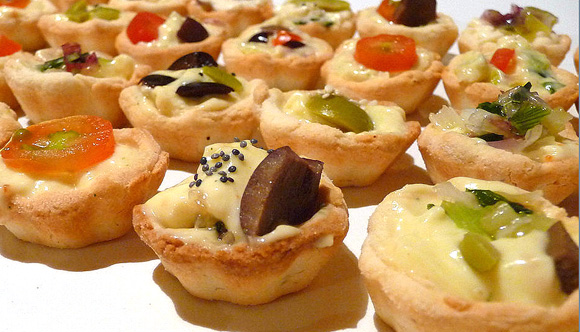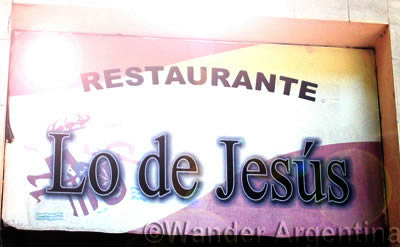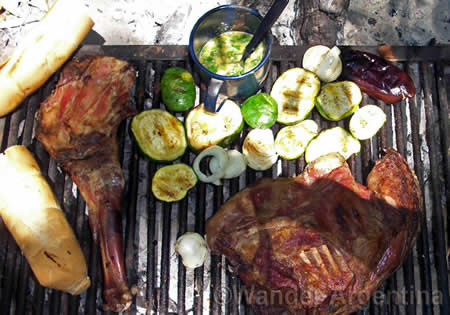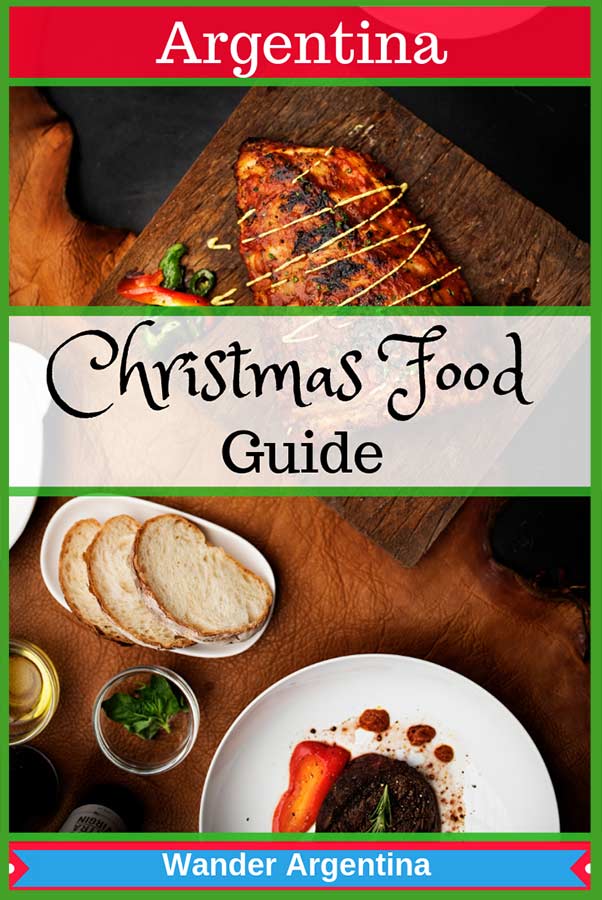Christmas eve in Argentina, is the main day of holiday celebration here and it lands in the midst of the scorching summer.
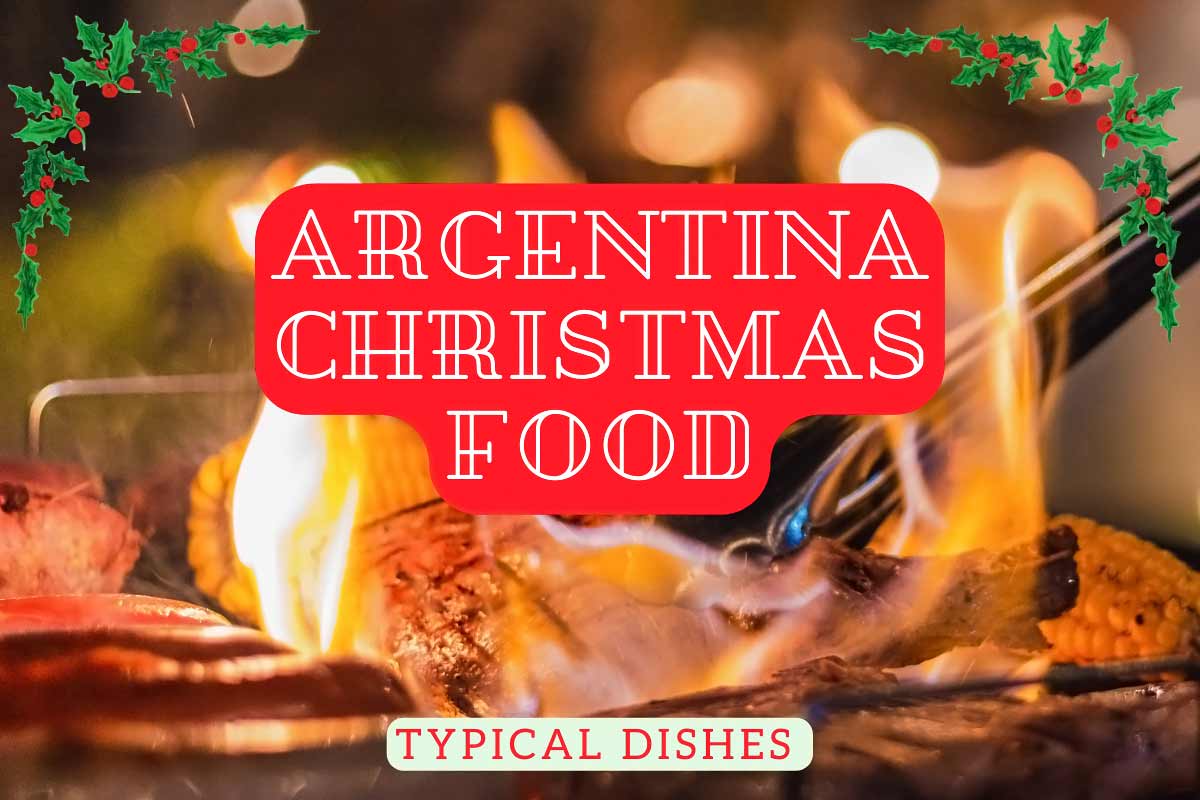
This means that holiday party spreads are heavy on cold appetizers.
Everyday standbys such as meat and cheese platters, empanadas, and migas, (crust-less finger sandwiches) make an appearance.
Argentina’s Christmas culinary tradition is focused on salads, fancy finger foods and special (and sometimes strange) holiday dishes from the old country and the customary asado.
Christmas Appetizers & Starters
The classic summer salad, ensalada Rusia (Russian potato salad) makes it onto most family tables at Christmas.
Although walnuts are pricey in Argentina, the Waldorf salad also shows up on more gourmet holiday spreads.
Common holiday appetizers include tomates rellenos — tomatoes stuffed with a rice pilaf or tuna salad.
Among the fancier finger foods are Argentina’s twist on deviled eggs, huevos rellenos de pate, eggs filled with pâté whipped with mayonnaise.
Also popular are canapes navideños, open-faced empanadas filled with ingredients such as cheese, ham, tomato, olives, and basil.
Chief among Argentine Christmas finger foods are savory pastries called Pionono, a savory Swiss roll.
Made with bizcochuelo, the sponge cake is wrapped up around tuna or chicken with condiments such as sliced cheese, tomatoes, artichokes and mayonnaise or salsa golf (an Argentine invention of ketchup mixed with mayonnaise).
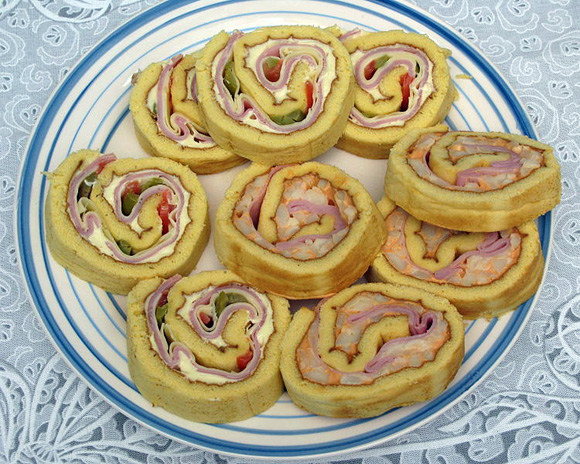
There is also a dessert version of pionono, made with jam or dulce de leche (sweet milk spread) seen on the holidays.
Torre de panqueques (tower of pancakes is another seasonal favorite that’s mostly seen in Patagonia.)
Also known in some areas of the country as Fiambre Alemán, a cake-shaped construction of savory crepes filled with any number of ingredients including ham, cheese, tomatoes, lettuce, olives and, of course, plenty of mayo.
A common Christmas appetizer and perhaps the most off-putting for vegetarians would have to be lengua a la vinagreta.
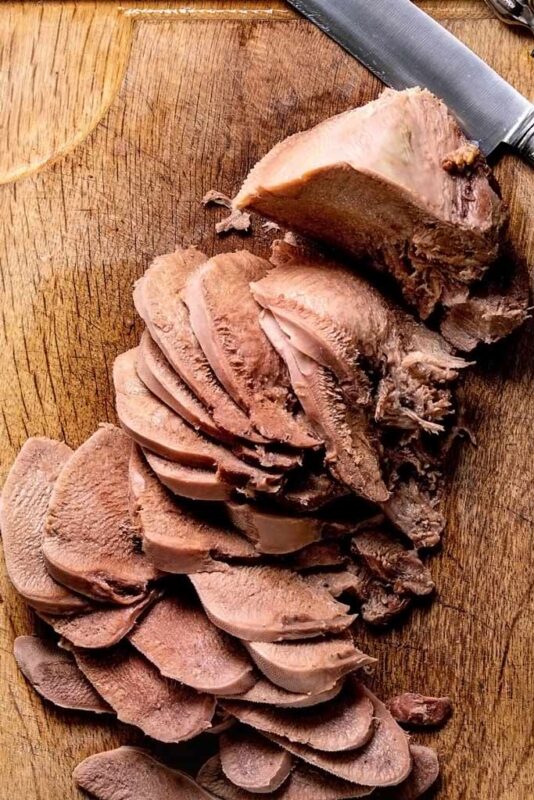
Beef tongue in vinaigrette is thinly sliced cow tongue simmered in vinegar and herbs.
Though seen year-round, another common platter at Christmas is matambre relleno, or beef roulade.
A food brought to Argentina by both Italian and German immigrants, it’s a fine cut of flank steak rolled around ingredients that can include boiled eggs, carrots, artichokes, olives, and ham or chicken.
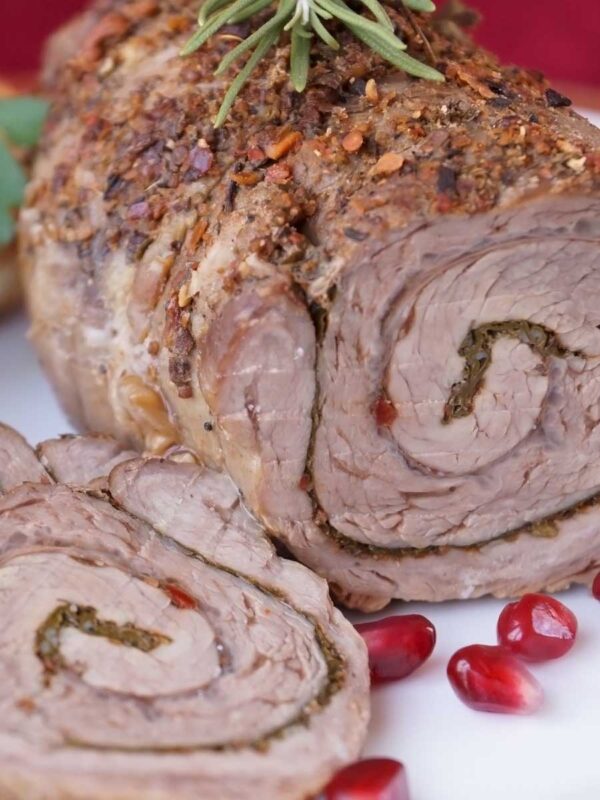
Did you know ‘matambre‘ literally translates into ‘kills hunger’?
Those in the western provinces, especially Syrian and Lebanese descendants, will likely serve ñinos envueltos, which literally translates as ‘wrapped children.’
The flavorful stuffed meat rolls are made with thinly-sliced rump roast wrapped in grape leaves and served in a tomato wine sauce.
Vitel Toné
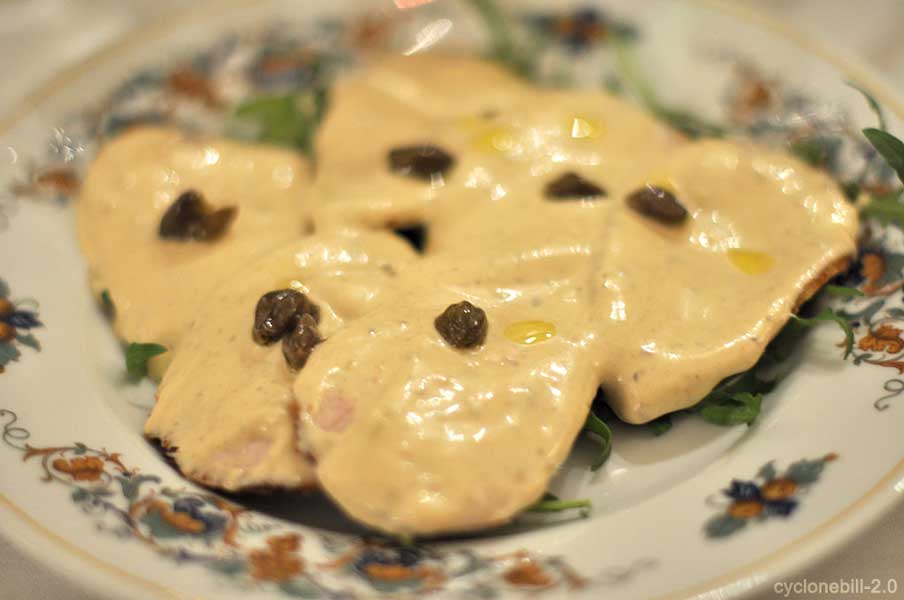
Vitel Toné (veal in tuna sauce), originally known in Italian as Vitello Tonnato, was brought over by immigrants from the Piedmont region of Italy and somehow established itself as Argentina’s most traditional Christmas entree.
The labor-intensive dish contains thinly sliced veal topped with a rich sauce of tuna, mayonnaise, cream, egg yolks, white wine, anchovies and capers.
It is chilled to let the flavor set and served in covered in the creamy sauce.
The more amateur cook may replace the creamy ingredients with Casancrem, an additive-laden white cheese spread sold in grocery stores.
The Christmas Main Course: Asado or Pork
Argentina being the land of die-hard carnivores, for many nothing says Christmas like the sacramental asado (barbecue).
Despite the heat, a brave asador (bbq-cook) will hold court while reverently attending to the steak, sausage, lamb, and chicken on the grill.
In the countryside friends and family will congregate in the garden or patio of whomever has the most elaborate parilla set-up.
In some neighborhoods of Buenos Aires groups with limited space will set up makeshift barbecue pits on the sidewalk or in the park.
On rainy years, and as tradition in some families, the main course could be lechón navideño, an oven-roasted suckling pig.
Whatever the Noche Buena (Christmas eve) brings to the table, with the calorie-laden foods, summer heat and loud all-night party, expect a tranqui (chilled-out) Christmas Day — Argentinians will be recovering from partying and pigging out the night before.
→ Read about: Argentina’s Traditional Christmas Desserts
→ Read about: Christmas in Buenos Aires
→ Check out our list of Food Tours in Buenos Aires

